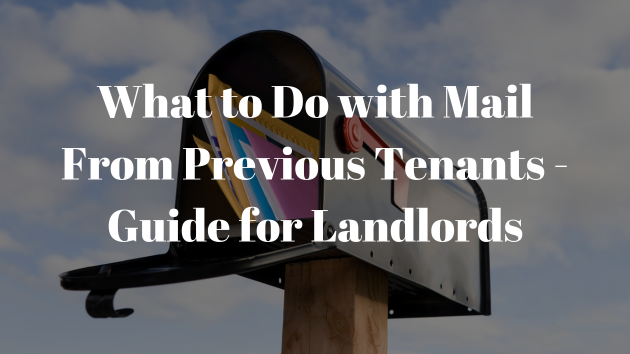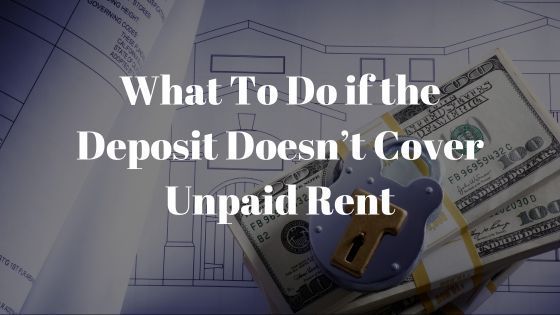
Top Questions to Ask Potential Charlotte Tenants
As a property owner in Charlotte, finding the best tenant is a dream come true. Good tenants pay on time, care for the property and alert you when maintenance issues arise, helping you grow your rental business.
No doubt, finding good tenants is a critical part of being a landlord. Equally important is weeding out potential delinquent rent payers and rule breakers. This all starts with a systematic screening process.
The tenant screening process begins before you’ve even started taking rental applications from prospective tenant. It begins the moment prospective tenants call you to view the property. You can quickly and easily screen good tenants from bad ones with a prepared set of tenant screening questions and interview questions.
Below are 10 tenant screening questions to ask that will help you find a good tenant for your Charlotte rental property.
10 Questions to Ask Potential Tenants
1. What are your reasons for moving out of your current place?
Asking this question will help reveal the prospective tenant’s rental history. If the renter is uncomfortable in answering this screening question then you should definitely get in touch with their previous landlord and find out why.
What you should be looking for are legitimate reasons for moving. For example, “I’m looking for a bigger place to live.” “I want to get closer to my place of work.” or “I really like the new neighborhood.”
2. How many occupants will be in the unit?
This is a simple yet important question to ask potential tenants. There should be enough bedrooms for all those that will be staying in the apartment. The ideal number of people should be at least two members in one bedroom. The lesser the number, the lesser the maintenance and repairs for the rental property. Also, overcrowding can be a safety and health risk.
Additionally, contact your Charlotte local code enforcement agency for occupancy limits.
3. Do you have any pets?
If the tenant has a pet and you have a no-pet policy for your rental, then there will be no need to continue with the interview. However, if you do allow pets then make sure the tenant sign the pet policy found in your lease. Also, include a pet deposit fee. Generally, renters with pets are more responsible and dependable.
4. Have you ever faced an eviction?
Although it’s likely the tenant will bend the truth, it’s still a question worth putting in your tenant questionnaire form. If the tenants have ever been evicted , give them time to explain the circumstances. Was the situation a blip in their lives? If it were, consider finding questions to ask their previous landlord.
If, however, the reason for their eviction was due to disturbing other tenants, causing excessive property damage or illegal use of the property, these behaviors aren’t likely to go away. Continue with your tenant search.
5. Will you consent to a background and credit check?
Make these background checks mandatory for all prospective tenants. If a tenant seems hesitant to give their consent, it’s likely they are hiding something regarding their rental history. Eliminate them from your pool of prospective tenants.
In addition, require all consenting renters to sign a form permitting the check. Consent made verbally isn’t legally binding.
6. What is your monthly income?
Rental income is the bread and butter of your real estate investment. As such, you want to make sure that the prospective tenant can afford it every month without issues.
Ideally, you want a tenant who is earning at least two- and a half times the rental price. So, if the rent is $800 per month, you want a tenant who is able to make at least $2,000 a month.
Now, this may not tell you the entire story. The tenant may, for example, have a debt that may limit their ability to pay the rent. This is often the reason why savvy Charlotte landlords always insist on a credit check.
7. Can you provide references from your former landlord?
An applicant who looks great on paper is not necessarily risk-free. That’s why it’s important to ask for references from their previous landlords.
As such, you want to call the previous landlord to see if your tenant is a good fit. Here are some questions to ask tenant references:
- When did the tenant’s lease start and finish?
- What is/was their monthly rent amount?
- Did the renter have rent-related issues?
- Did the tenant cause damage to the property?
- Does the renter owe you any money?
- Would you rent your property to them again?
Getting this information on your own may help prevent forgery by the tenant.
8. Can you provide references from your employee?
Before making any verification calls, make sure your tenant has consented to the background check. This is because many employers will want to see a written consent from the tenant applicant to release employment details.
Here are some questions you can ask their employer?
- Can you confirm that the named person works/worked here?
- Do you enjoy working with the applicant?
- How many average hours does the applicant clock?
- Is the applicant on full-time employment or on a contract?
- What is the applicant’s position within the company?
9. Will you have first month’s rent and security deposit available upon move-in?
Asking this question to potential renters will help protects you. Security deposits help cushion landlords against lease violations by the renter. It’s therefore important to require it in addition to the first month’s rent when a renter is moving in.
This rental question helps reveal a prospective tenant’s financial state. If the tenant suggests to pay in installments or seems hesitant to make a full commitment, move on. You want a tenant who is willing, ready and excited to move in as soon as possible.
10. What is your moving-in date?
This tenant screening question can tell you a lot about the tenant as well. Does the tenant want to move in immediately? If so, something may be off. It’s possible the tenant may have been evicted.
Generally, landlords require that renters who wish to move out give them a thirty-day notice. Additionally, responsible renters usually begin their apartment search well in advance.
That said, the tenant may still have a legitimate reason. He or she may have received an unexpected job transfer. He or she may also be a domestic violence victim. If in doubt, ask them for some proof.
These are the 10 top tenant screening questions to ask potential Charlotte tenants. Remember, ask the same tenant pre-screening questions to all tenants in order to treat all interviewees equally.

Dawson Property Management










